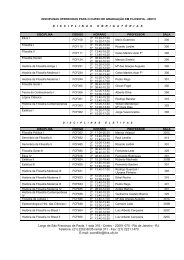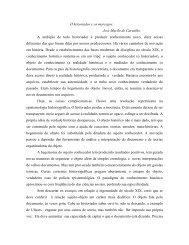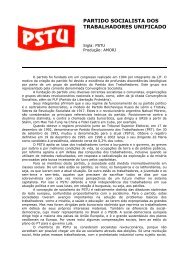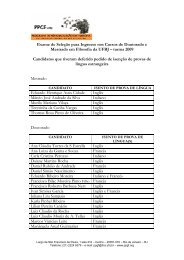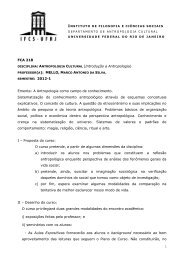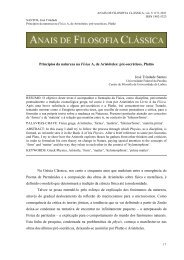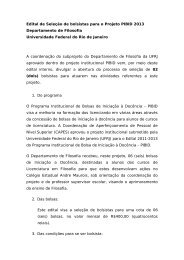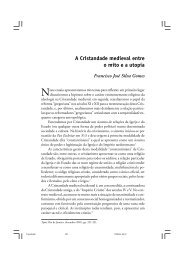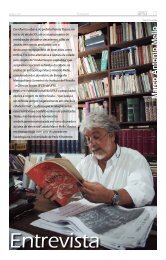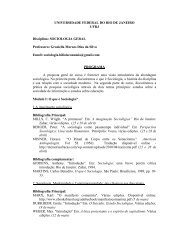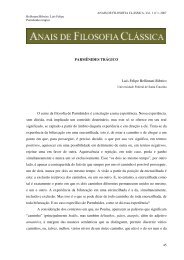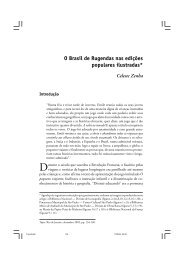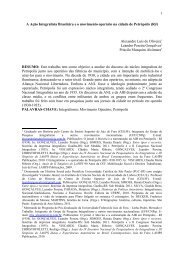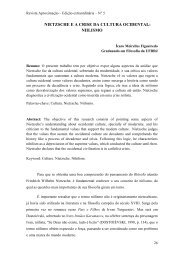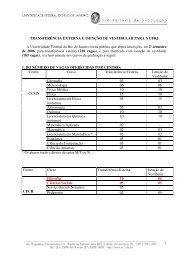Teorias de Mudança de Crenças (Dinâmica Doxástica) - IFCS
Teorias de Mudança de Crenças (Dinâmica Doxástica) - IFCS
Teorias de Mudança de Crenças (Dinâmica Doxástica) - IFCS
You also want an ePaper? Increase the reach of your titles
YUMPU automatically turns print PDFs into web optimized ePapers that Google loves.
A possible explanation:<br />
Justificação epistêmica<br />
Thomas Kuhn (The Structure of Scientific Revolutions, 1970) has presented a theory<br />
of belief changes (theory changes). According to that theory large scale belief changes<br />
– paradigm shifts – do not bow to rational control. (Though Kuhn also asserted that<br />
changes within a paradigm are largely governed by the methodological rules of that<br />
paradigm.)<br />
• Kuhn’s theory (sufficiently vulgarized) has enforced for <strong>de</strong>ca<strong>de</strong>s relativistic ten<strong>de</strong>ncies<br />
in philosophy and – even more so – in neighbouring disciplines. Such ten<strong>de</strong>ncies are<br />
rarely shared by epistemologists.<br />
· Belief changes, on the one hand, appeared un<strong>de</strong>r the Kuhnian perspective as rationally<br />
impredictable and not subject to normative contraints.<br />
· Most epistemologists agreed that knowledge claims, on the other hand and to the<br />
contrary, are subject to rational assessment.<br />
• Consequence: The static problem remained within traditional epistemology; the dynamic<br />
problem – together with its relativistic si<strong>de</strong> effects – was exiled to the History<br />
of Science.<br />
15



